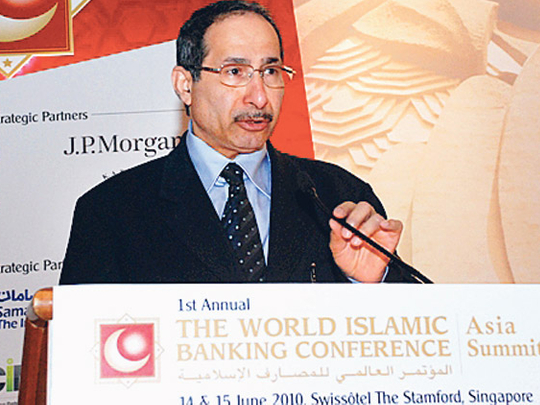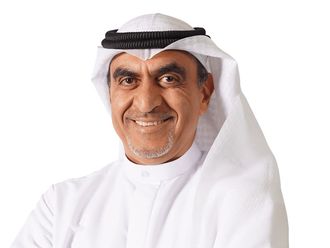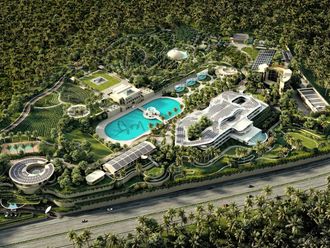
Singapore: The management of short-term liquidity by financial institutions in the UAE is one of the challenges facing the growing Islamic banking system here, the UAE Central Bank governor said yesterday.
Addressing the opening session of the first annual World Islamic Banking Conference-Asia, Sultan Bin Nasser Al Suwaidi also pointed out the need to distinguish between the profits of shareholders and those of investors and depositors.
"The figures of Islamic banks are impressive, but there are some challenges that would need the focused attention of scholars," Al Suwaidi said.
"The first such challenge is the question of disparate rulings by the various Sharia boards of Islamic banks, which should be better coordinated and harmonised," he said.
This "will satisfy an important requirement of setting credible standards [for Islamic banks]."
Short-term liquidity management at Islamic banks and other financial institutions constitutes another challenge, he said.
"This is not a straightforward issue and has been under discussion between Islamic banks and the Central Bank of the UAE. There is now a proposal to advance a solution for this issue," Al Suwaidi said.
Challenge
"The third challenge is the distinction between profit to shareholders and profit to investors [or] depositors, which is not a clear-cut issue at the moment. We need a standard formula to calculate profit in an equitable and fair way at all Islamic banks," he said.
The Islamic banking system in the UAE goes back to 1975 with the formation of Dubai Islamic Bank. In 1998, the second bank, Abu Dhabi Islamic Bank, was formed.
Today there are eight Islamic banks operating in the UAE with 219 branches and assets of Dh242 billion at the end of 2009. These represent 16 per cent of the total assets of the banking system. Deposits at the end of 2009 stood at Dh183 billion, or 18.7 per cent of the banking system.
Deposits grew 9.5 per cent, and loans and advances 5.5 per cent in "a difficult year" as a result of the international financial crisis, Al Suwaidi said. Assets of Islamic banks grew 6.5 per cent in 2009.
The UAE "is well placed to take advantage of any growth in the economies of the countries in the region," he said, due to its infrastructure to "service stronger trade and investment flows".
The UAE's infrastructure projects — such as the railway, marine transport networks and nuclear power generation plant — are expected to "add value and help expand other economic sectors", he said, leading to further diversification of the economy.












